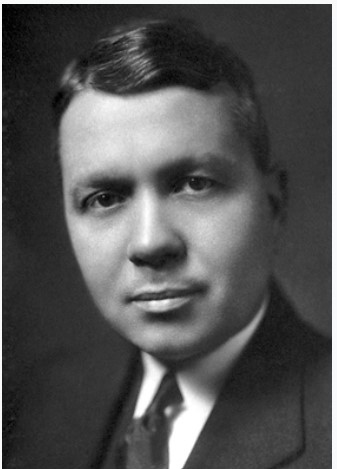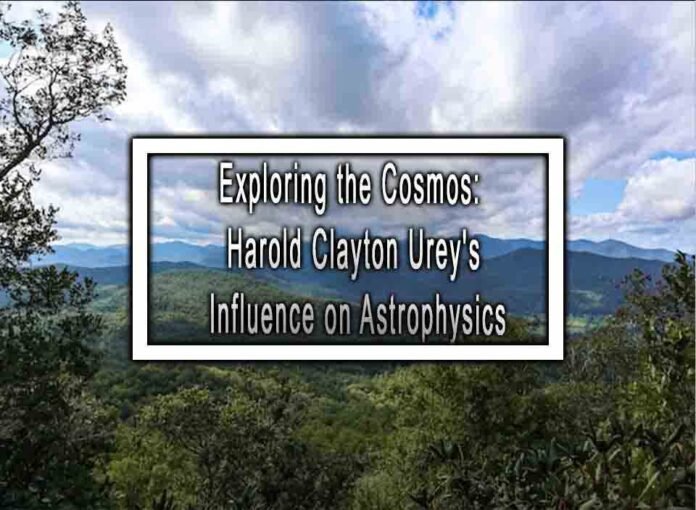Harold Clayton Urey was an American physical chemist who made significant contributions not only to the field of chemistry but also to astrophysics, particularly in the study of the cosmos and the origins of the solar system. His groundbreaking work and innovative ideas left a lasting impact on our understanding of the universe. Here are some aspects of Urey’s influence on astrophysics:

1. Deuterium and Stellar Nucleosynthesis:
- Urey’s research on isotopes, particularly deuterium (a heavy isotope of hydrogen), was instrumental in understanding the nuclear processes that occur in stars.
- He calculated the abundance of deuterium in the universe and its role in stellar nucleosynthesis, the process by which elements are formed in the cores of stars.
- Significance: Urey’s work provided insights into the origins of elements in the universe and contributed to our understanding of how stars evolve and produce chemical elements.
2. Cosmochemistry:
- Urey was a pioneer in the field of cosmochemistry, which involves the study of the chemical composition of celestial bodies and the processes that shape them.
- He made significant contributions to our understanding of the chemical makeup of meteorites, the Moon, and other celestial bodies.
- Significance: His research helped uncover the chemical history of our solar system and provided clues about the conditions that prevailed during its formation.
3. Origin of Earth’s Water:
- Urey proposed a theory about the origin of Earth’s water, suggesting that much of it came from comets and asteroids that bombarded the young Earth.
- His work laid the groundwork for the study of water’s origins on Earth and other planets.
- Significance: Urey’s ideas about the delivery of water to Earth have implications for the study of habitability and the potential for life on other planets.
4. Stellar Abundances and Isotopic Ratios:
- Urey’s investigations into the isotopic composition of elements in stars and meteorites provided critical data for understanding the chemical evolution of the cosmos.
- He studied the isotopic ratios of elements like oxygen, nitrogen, and carbon in various astrophysical contexts.
- Significance: Urey’s work contributed to our knowledge of the chemical diversity of stars and the processes responsible for the formation of different isotopes.
5. Nobel Prize in Chemistry (1934):
- Urey was awarded the Nobel Prize in Chemistry in 1934 for his discovery of deuterium and his work on isotopes.
- Significance: His Nobel Prize recognition highlighted the importance of isotopic research, which has applications not only in chemistry but also in astrophysics, geology, and other scientific disciplines.
Harold Clayton Urey’s contributions to astrophysics, cosmochemistry, and the study of isotopes have had a profound and enduring impact on our understanding of the universe and the processes that shape it. His innovative ideas and meticulous research continue to inspire scientists in various fields of science, from planetary science to the study of stellar evolution and the origins of elements.











